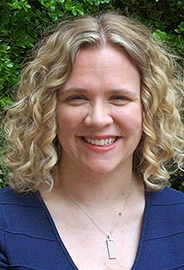
Rebecca A. Ihrie, Ph.D.
Associate Professor of Cell and Developmental Biology
Associate Professor of Neurological Surgery
- : rebecca.ihrie@vanderbilt.edu
- : 615-936-2951
- :
B2317 Medical Center North
1161 21st Avenue South
Nashville, Tennessee - 37232
My laboratory uses cytometric approaches to 1) identify proliferative pathways that are differentially active within cell subsets in the stem cell niche of the ventricular-subventricular zone), 2) determine how this pattern of activation is altered in disease states, particularly pediatric neurological disorders and adult high-grade brain tumors, and 3) directly identify subpopulations of progenitor-like brain tumor cells using multiparameter single-cell protein analyses.
View Rebecca Ihrie’s Basic Sciences faculty profile video.
We are interested in how stem cells integrate the many signals present in the niche to direct self-renewal, proliferation, and the generation of committed progeny. Rapidly dividing progenitor cells also share many molecular features with cancer cells, and the pathways regulating neural stem cells are frequently disrupted or altered in tumorigenesis. The laboratory focuses on a unique germinal niche in the brain: the ventricular-subventricular zone (V-SVZ). In the mouse, this region generates thousands of young neurons every week – a remarkable process in a largely quiescent tissue. Other projects in the lab focus specifically on proliferative signaling in human brain tumor cells, and the interplay between malignant tumors and the V-SVZ niche in the human.
Currently, we have two major areas of interest: 1) how the pre-programmed “positional identity” of neural stem cells affects protein synthesis and tumor development in pediatric patients, and 2) which of the many stem-like subpopulations present within adult brain tumors drive recurrence after treatment. Ongoing studies in the lab will focus on these questions using sphere and organoid culture, single-cell protein measurements, and in vivo systems such as conditional mouse models and human tumor xenografts.